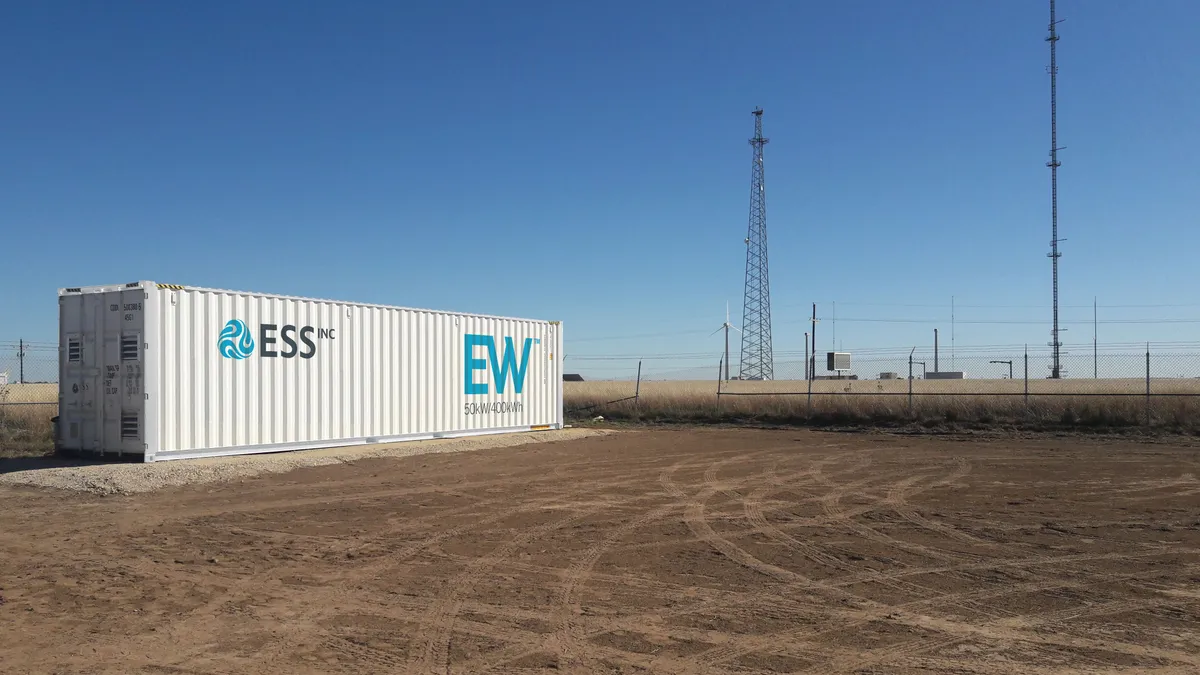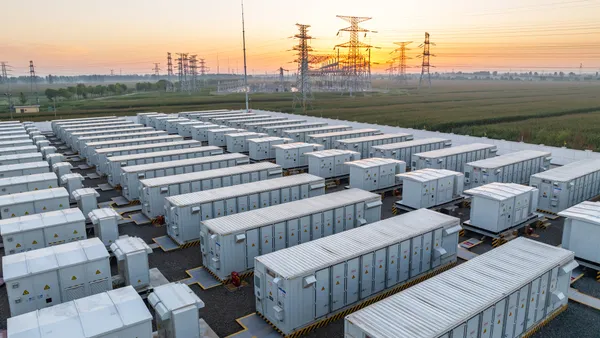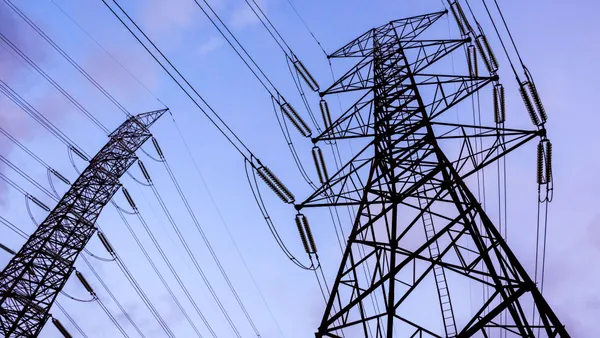Dive Brief:
- The Michigan Public Service Commission (MPSC) is encouraging investor-owned utilities to propose energy storage pilot programs as part of an initiative to better understand how storage resources can benefit the grid.
- The pilots, proposed in an order issued by the MPSC on Wednesday, will allow utilities to propose retail tariffs for storage resources. Under the pilots, utilities can also participate in wholesale markets on behalf of customer-owned energy storage resources (ESRs), develop rates and tariffs and compensate the storage resource for the market transaction.
- The pilot program comes in response to the Federal Energy Regulatory Commission’s (FERC) Order 841, which seeks to reduce barriers to the use of storage in wholesale electricity markets and compensate it for its unique role.
Dive Insight:
The proposal for pilot programs comes as the Midcontinent Independent System Operator (MISO) and other ISOs and regional transmission organizations rework their market rules to comply with the FERC order and prepare for the increase in energy storage coupled with renewable energy.
MISO, which serves most of Michigan, has until June 6, 2022, to implement tariff provisions and comply with Order 841. PJM Interconnection, which also serves part of Michigan, had its storage plan approved in 2019 and recently proposed an Effective Load Carrying Capability framework to better calculate the contributions of renewable energy and storage.
In its Aug. 11 order, MPSC says that storage participation in the wholesale market could be "effectively facilitated by an electric distribution company or utility" and that a "well-designed retail tariff that accounts for the full value stack of ESRs and is attractive to customers may be the best way to begin integrating ESRs into the electric grid at increasing levels."
The commission did not fully back dual participation of ESRs in both the wholesale and retail markets in the short term, but instead said utilities should "propose tariffs that provide an appropriate pathway for the deployment of ESRs within their respective service territories."
In comments on the MPSC decision-making process for Order 841 compliance, a coalition of clean electricity groups had endorsed a dual participation model, which they said would make projects more financially viable, attract more investors and showcase the role storage can play in grid resilience, cost declines and meeting customer demand. However, utilities DTE Energy and Consumers Energy Company each commented that dual participation would create confusion on the market and could raise costs on some customers if participants dodged higher rates by switching markets.
While the MPSC order states it is not "foreclosing the possibility of broader dual participation of ESRs," it considers the use of pilot programs the best path forward to evaluate the impact of storage and gauge the market.
"We think it’s great that the board would issue this order and think proactively before MISO has finalized their rules," said Laura Sherman, president of the Michigan Energy Innovation Business Council (MEIBC), one of the clean energy groups that commented as part of the process. "This is a step towards more action that can give us more specificity on what kind of storage we need to support clean energy."
MEIBC is also part of a state-sponsored energy storage roadmap process, which is compiling models and test cases to inform the state’s future storage policies.
MPSC says it is also interested in pilots that explore the use of storage as a non-wire alternative to transmission, including an analysis of solutions with or without retail and wholesale benefits.
While the MPSC is encouraging new pilots, utilities have already begun testing storage projects throughout the state. In a March presentation to the MPSC, Consumers Energy detailed two installed storage-plus-solar projects, two storage projects under construction and two more planned projects, which would test use cases like islanding, outage mitigation and automatic laid switching between circuits. In the same presentation, DTE said it was "exploring and deploying several pilots," including storage-plus-solar and coupling fast charging for electric vehicles with storage, along with plans to test resilience, non-wire alternatives, microgrids and demand response.
Other states have launched their own storage programs. Notably, in New York, the New York ISO allows dual participation, the only grid operator to currently oversee such a program. Sherman said Michigan should take advantage of the examples from elsewhere in the nation.
"It’s great that the commission has set out these rules because we need to understand this stuff, but we also don’t need to delay forever," Sherman said. "We want to highlight work that goes on in other states and take advantage of other work, so we don’t run into doing pilots forever."














